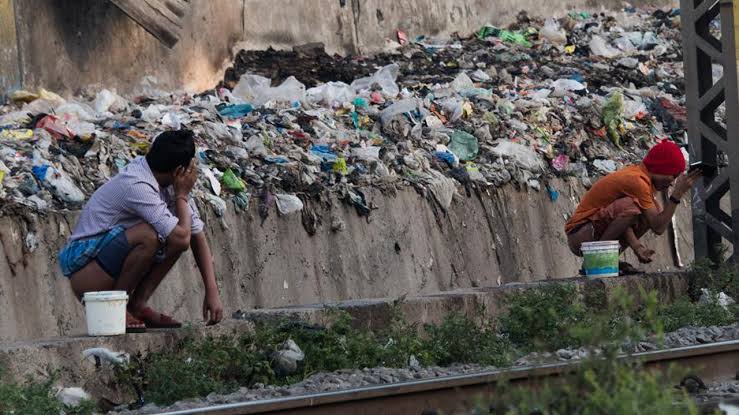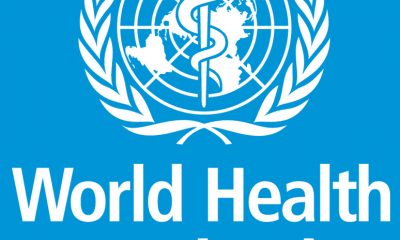Health
208 Million Africans Still Practicing Open Defecation – WHO

The global health body has revealed the number of Africans that still practice open defecation.
EKO HOT BLOG reports that World Health Organisation (WHO), in a report revealed that 208 million Africans still practice open defecation.
EDITOR’S PICKS
-
What Lagos Govt Told Hotel Owners, Event Managers Ahead Of Yuletide
-
REVEALED! Why Only Tinubu Can Be President Of Nigeria
-
Sanwo-Olu Unveils 37 Cultural Wonders of Nigeria At NAFEST 2022
In a statement through its Regional Director for Africa, Dr. Matshidiso Moeti, in commemoration of the 2022 World Toilet Day with the theme ‘Sanitation and groundwater,’ the health body said that the number is increasing annually.
Dr. Moëti also stated that 779 million people in Africa lack basic sanitation services.
She said, “Access to safely managed sanitation services, in combination with safely managed drinking water services and good hygiene practices, is fundamental to ensuring public health. It leads to fulfilling the SDG 6 targets and is essential for the realisation of all other sustainable development goals.
“Between 2000 and 2020, the population of Africa increased from 800 million to 1.3 billion. Some 290 million people gained access to at least basic sanitation services during that period.
“However, 779 million people still lack those basic services. Of these, 208 million still practice open defecation.
The Regional Director also said that report from the Joint Monitoring Programme on drinking water and sanitation highlighted the poor access to sanitation services in Africa.
“The WHO/UNICEF Joint Monitoring Programme report on progress on drinking water and sanitation highlights the fact that only 29 per cent of health care facilities in Africa have basic sanitation services.
“According to the Joint Monitoring Programme 2020 data, 33 per cent of households in Africa have basic sanitation services, with 21 per cent using safely managed sanitation facilities. Two out of three people lack safely managed sanitation services, Dr. Moët stated.
She further stresses that 27 per cent of rural and five per cent of urban populations still practice open defecation in Africa, as shown in the report.
In her words, “We must work on average four times faster to ensure everyone has a safe toilet by 2030. The connection between sanitation and groundwater cannot be overlooked.
“In densely populated urban settings, pit latrines and septic tanks sited close to waterpoints that draw from shallow aquifers create potentially serious health risks.”
“This has a profound impact on public health and environmental integrity. For women and girls, in particular, toilets at home, school, and at work help them fulfil their potential and play their full role in society, especially during menstruation and pregnancy.”
“The indignity, inconvenience, and danger of not having access to safely managed sanitation is a barrier to their full participation in society.
“Safely managed and properly sited sanitation protects humans and groundwater from faecal waste pathogens. A safe and sustainable sanitation system begins with a toilet that effectively captures human waste in a safe, accessible, and dignified setting.”
“Toilets drive improvements in health, gender equality, education, economics, and the environment.”
She mentioned that the WHO Regional Office for Africa, through its role in 2022, has supported key monitoring interventions on access to sanitation services but there should be concerted efforts to strengthen the inclusive policy.
FURTHER READING
- JUST IN: KWASU VC, Professor Akanbi, Is Dead
-
Tinubu Has No Criminal Record – Alake
- Popular Global Gospel Concert, ‘The Experience’ Returns To Lagos Stadium
“The link between groundwater and sanitation needs to be strengthened through inclusive policy and coordinated implementation. Thus, cooperation between policymakers, water resource, sanitation specialists, and practitioners should be increased,” she said.
Click to watch our video of the week
Advertise or Publish a Story on EkoHot Blog:
Kindly contact us at [email protected]. Breaking stories should be sent to the above email and substantiated with pictorial evidence.
Citizen journalists will receive a token as data incentive.
Call or Whatsapp: 0803 561 7233, 0703 414 5611










